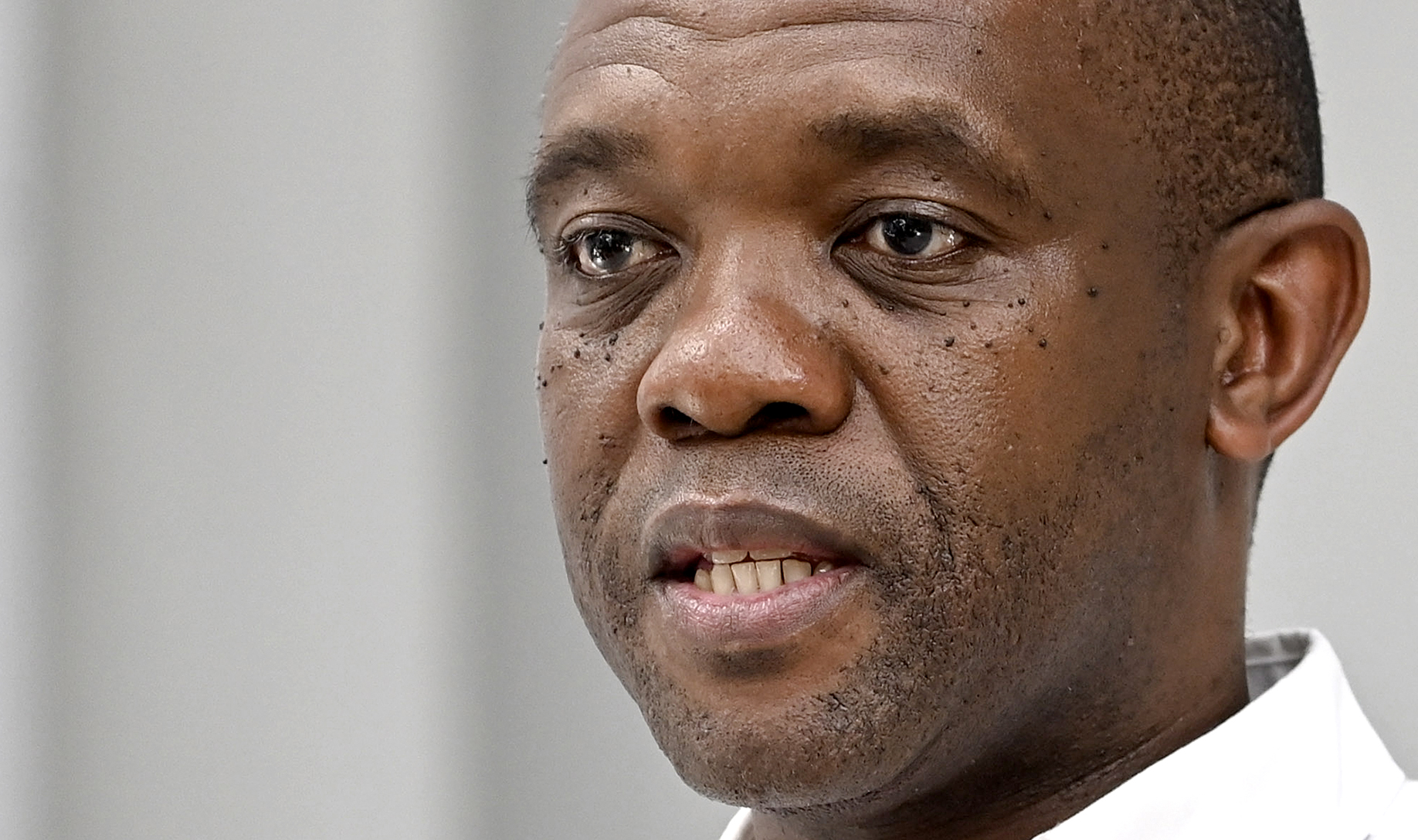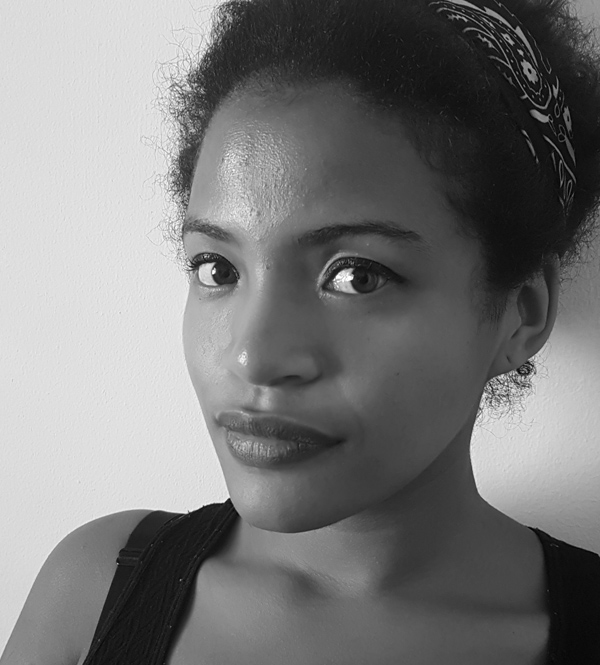‘Yes, it was worth it,” said Rise Mzansi leader Songezo Zibi on the party’s decision to join the Government of National Unity (GNU), which has been in government since June 2024.
During a media briefing in Parliament on Thursday, 28 November, Zibi and Makashule Gana briefed journalists about the GNU and the party’s role in Parliament.
The party was one of the newbies of this election cycle, having existed formally only since April 2023. Its members – often young and including both professionals and activists – campaigned on the slogan, “We need new leaders.”
This translated into 138 528 votes in the national elections. That was enough to score two seats in the National Assembly. They were taken up by party leader Zibi and national organiser Gana. Both have experience in public life. Zibi was a former banker turned journalist, and then politician. Gana was formerly a well-respected member of the Democratic Alliance (DA) and a former parliamentarian for that party, too.
After the 2024 elections, Rise Mzansi joined the GNU in June after lengthy discussions with the African National Congress, which took the most votes but for the first time failed to secure a majority.
The GNU might have been worth it for Rise Mzansi, but what about South Africa?
“I’ll say it’s worth it for us and it’s worth it for the South African people,” said Zibi.
“Firstly, one of the problems the ANC had on its own is the depth of its capacity to govern, even to do the work in Parliament. I think it’s good for the South African people that they get access to a wide range of talent from across political parties, which was never going to happen before.”
Zibi explained there were ministers from across the spectrum who were beginning to get to grips with their portfolios.
“I know this is not where we give shout-outs to other political parties,” he said, adding, “I think Leon Schreiber is going well now at Home Affairs.”
He also pointed to the appointment of a former professional soldier as deputy defence minister – the United Democratic Movement’s Bantu Holomisa.
Rise’s GNU role
Zibi said there were conditions attached to the GNU negotiations, but the party wanted to “play an effective role as we can”. Instead of executive posts, the party ended up taking key positions in Parliament.
Gana was chosen to serve as a whip among the small parties.
Zibi was elected to the powerful position of chairperson of the Standing Committee on Public Accounts (Scopa), the public funds watchdog. This is a role that has traditionally gone to opposition parties and not someone from the governing party or coalition.
There was controversy at the time of his appointment, as Daily Maverick’s Rebecca Davis pointed out.
“The ANC nominated [me], the DA supported… MK (the uMkhonto Wesizwe party) specifically did not oppose and we had spoken to all the political parties,” said Zibi.
He said the Economic Freedom Fighters raised an objection based on principle, but not on him as an individual. No other candidate was put forward and Zibi was elected as chair.
‘We need patience’
Zibi also called on South Africans to be patient while the GNU established itself.
“I think one of the things all of us need to recognise is how unprecedented … a forced coalition arrangement is in South Africa.”
He said the first GNU was a “pre-election choice in 1993 where the government of national unity didn’t last”.
He said the necessity of the current coalition was part of the development of democracy itself.
“It is not going to be smooth,” said Zibi.
“So we need to be a little patient.”
He pleaded for maturity to avoid squabbles, as seen between parties such as the ANC and DA.
“They need to grow up,” he said.
“So when we talk about maturity, we are talking about an ability to recognise the obligations that the Constitution places on all of us.”
Read more: A hundred days later, the ANC side of GNU is still adjusting — and it may take a while
Bela Act
During the briefing, Zibi and his party outlined where they stood on several issues, including the contentious Basic Education Laws Amendment Act (Bela Act) and the National Health Insurance Bill.
Zibi said the party supported the contentious Bela Act, which the DA, another GNU member, opposes for the role it gives provincial education departments in determining schools’ language and admission policies.
Read more: Bela Bill seeks to bring SA’s education system in line with Constitution, say civil society bodies
Zibi reiterated that the party had supported the Bill.
“It must be implemented without delay, and those who believe that the Act is legally flawed must approach the courts.”
Zibi said this position was put before the GNU Clearing House Mechanism, where Gana represents the party.
The clearing house is a multiparty, issue-specific negotiating committee that deals with disputes on thorny issues.
“With communities becoming more diverse, Rise Mzansi believes that admission and language policies of schools must result from provincial heads of department and school governing bodies working together,” said Zibi.
“This will eliminate perceived and real discrimination, especially on the basis of language – giving weight to the right to quality education of all learners.”
“We also want to again dissuade various role players and stakeholders from contaminating the legislation for their own narrow and political interests. The interests of learners and educators must come first, regardless of their race, class or locality,” said Zibi.
Rise Mzansi is concerned about one provision in the Bela Act: penalties for parents of children who are not attending Grade R.
“This may be due to circumstances those parents cannot control, such as being too poor,” Zibi explained.
Gana said the GNU’s clearing house sub-committee should prioritise discussions on the Bela Act as the country “can’t” go into January 2025 with this issue.
“It’s not a Bela clearing house,” he explained, but rather a mechanism that dealt with all issues in the GNU.
National Health Insurance
Zibi also spoke about the National Health Insurance (NHI) Bill, which has also drawn strong opposition.
“Rise Mzansi supports universal health coverage that is accessible, affordable and that offers a service that is dignified and of a high quality,” said Zibi.
But, he said, “The public healthcare system as it stands simply cannot take on the NHI nor can the fiscus afford it. We must ensure that we build a working system on the current foundation rather than attempting to build something new and expensive.”
Zibi said what was needed was to “make sure we get the basics right”. DM





